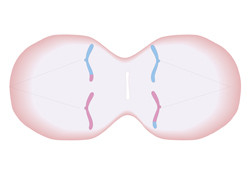Chromosome segregation in yeasts
Protein kinases play an important role in regulating multiple biological processes, including meiosis. Up to now, several protein kinases have been implicated in regulation of meiotic chromosome segregation. The EU-funded AEKSP project aimed to analyse the molecular functions of essential protein kinases and define how these kinases regulate meiotic chromosome segregation. Researchers applied the chemical genetic strategy to create the conditional analogue-sensitive alleles of essential protein kinases of Schizosaccharomyces pombe (Sp). Inhibition of particular kinases during meiosis revealed that seven out of these kinases are required for proper meiotic chromosome segregation. The proteomic approach was applied to gain insights and identify kinases targets and their posttranslational modifications. Importantly, a novel conditional analogue-sensitive allele (pat1-as2) of Pat1 protein kinase was developed as an improved tool to induce synchronous meiotic cultures at optimal temperature. Obtained results confirmed the validity of pat1-as2 system for assaying of recombination intermediates in Sp at 25°C. They also provided new information on the mechanism of meiotic recombination. Newly introduced pat1-as2 allele provides a boost for future dissecting of the special features of meiosis. The results of the project were disseminated through several publications. They led to better understanding of the molecular mechanisms of chromosome segregation during meiosis. In the long-run, project outcomes will help elucidate the principles of gametogenesis as well as the reason of genetic disorders resulting from chromosome mis-segregation.







